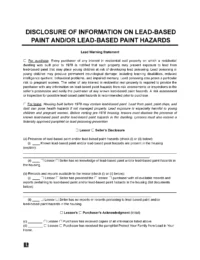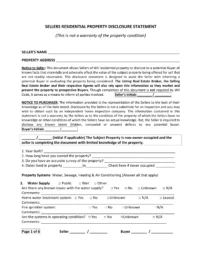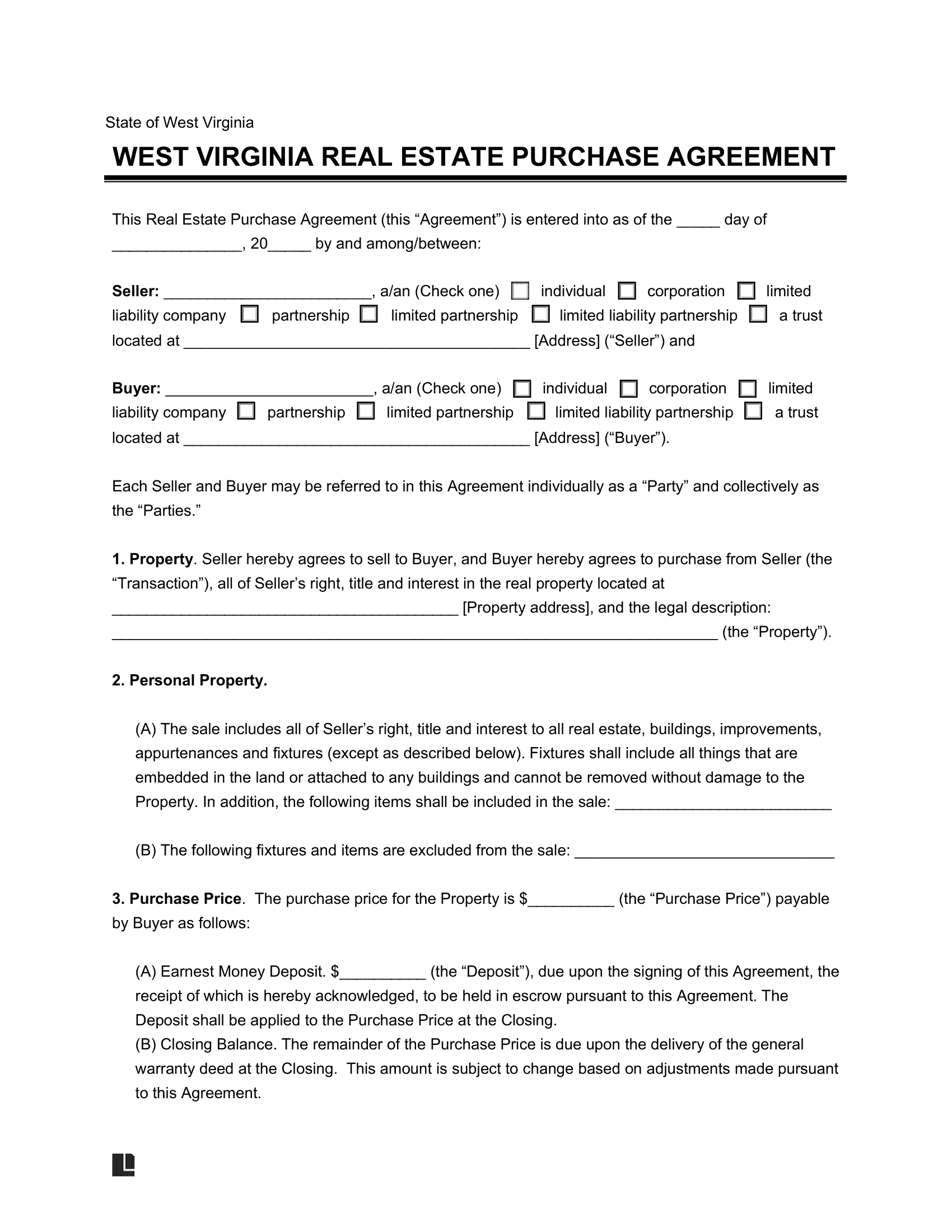A West Virginia residential purchase agreement details the terms that a buyer and seller agree to for a residential real estate transaction. This contract includes crucial details, such as the property’s legal description, the negotiated purchase price, the agreed-upon closing date, and specifics relating to closing costs and any personal property the seller will include in the sale.
It may also discuss contingencies, such as the buyer’s need to sell another property, obtain insurance, or secure financing approval. If the buyer doesn’t meet these contingencies within the specified timelines, the seller can terminate the contract.
State Laws
- Buyer Beware: West Virginia is a buyer beware or “caveat emptor” state, meaning that the seller has no legal obligation to reveal the property’s condition to prospective buyers. If a licensed agent is selling a property on behalf of the owner, the agent must not misrepresent the property or mislead the buyer to make a sale [1] .
Required Seller Disclosures
Lead-Based Paint Disclosure
Federal law (42 U.S. Code § 4852d) necessitates that sellers disclose lead-based paint hazards to buyers for any home built before 1978.
Do Sellers in West Virginia Have to Disclose Property Defects?
No. Sellers don’t have to disclose material defects, but they should not purposefully deceive buyers. Buyers will always be responsible for conducting due diligence. If they get a proper inspection, they won’t be liable for defects that are found later.


